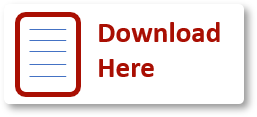STUDENT WORKBOOK USE: DOES IT STILL MATTER TO THE EFFECTIVENESS OF STUDENTS’ LEARNING?
Abstract
One effort that teachers can do to improve their learning process is by developing learning resources for themselves and their students. Teachers can use student workbook (LKS) to be used as a source of learning for students. A student workbook that contains material summaries can help students more effectively understand the materials. Student workbook containing a variety of practice questions is believed to affect the effectiveness of student’s learning. This research aims to analyze the effects of using student workbook (LKS) towards the effectiveness of students’ learning. This research was conducted to see students' perceptions of the role of using student workbook (LKS) towards the effectiveness of student learning. To collect data, this study used a questionnaire distributed to 24 students using a survey administration application, consisting of six questions related to the students' perceptions of the role of using student workbook (LKS) towards student’s learning process. After all, participants had completed the questionnaire, the data were then categorized based on relevant findings. The findings reveal that the use of student workbook gives beneficial impact on students’ learning since it can be one of the sources of learning besides the teacher’s explanation. It also makes students easier in understanding the materials with simple content and various practices. In the end, this research hopefully can be useful as a reference or guide for future researchers who want to conduct similar research on the use of student workbook (LKS) as one of the resources in the teaching process.
Full Text:
PDFReferences
Aminatun, D., & Oktaviani, L. (2019). Memrise: Promoting Students’ Autonomous Learning Skills through Language Learning Application. Metathesis: Journal of English Language, Literature, and Teaching, 3(2), 214-223.
Anwar, Syaiful. (2017). The Use of Students’ Workbook in Teaching English Class at Second Grade of MTS N Teras in the Academic Year of 2016/2017. Retrieved from: http://eprints.iain-surakarta.ac.id/746/1/Syaiful%20Anwar.pdf
Ayu, M., & Indrawati, R. (2019). EFL Textbook Evaluation: The Analysis of Tasks Presented in English Textbook. Teknosastik: Jurnal Bahasa dan Sastra, 16(1), 21-25.
Benning, Isaac, & Agyei, D. D. (2016). Effect of Using Spreadsheet in Teaching Quadratic Functions on the Performance of Senior High School Students. International Journal of Education, Learning and Development, 4(1), 11-29.
Harahap, F., Dwi. S., & Hanim, F. (2017). The Effect of Students’ Workbook Based on Skill of Science and Motivation Process toward Learning Outcomes at Grade 4 SDNegeri 164330 Tebingtinggi. IOSR Journal of Research & Method in Education (IOSR-JRME) 57-61.
Karsli, F., & Sahin, C. (2009). Developing Workbook Based on Science Process Skill: Factor Affecting Solubility. Asia Pacific Forum on ScienceLearning and Teaching, 10(1).
Kuswoyo, H. & Wahyudin, A. Y. (2017). Improving Student's Listening Skill Using Task-Based Approach in EFL Classroom Setting. Paper presented on 4th Asia Pacific Education Conference (AECON 2017). Retrieved at https://www.atlantis-press.com/proceedings/aecon-17/25884229
Mandasari, B., & Oktaviani, L. (2018). English language learning strategies: an exploratory study of management and engineering students. Premise: Journal of English Education, 7(2), 61-78.
Prastowo, A. (2014). Pengembangan Bahan Ajar Tematik Tinjauan Teoretis dan Praktik. Jakarta: Kencana Prenada Media Group.
Ristevska, M., Kocoska, J., Gramatkovski, B., & Sivakova, D. (2015). The role of workbooks in the learning process in primary schools in the Republic of Macedonia. International Journal of Innovation and Applied Studies, 11(3), 691-698.
Sari, F. M. (2019). Internet-Based Materials in Enhancing College Students’ Writing Skill Viewed from Their Creativity. Teknosastik: Jurnal Bahasa dan Sastra, 14(1), 41-45.
Susantini, E., Isnawati, & Lisa, L. (2016). Effectiveness of Genetics Student Workbook to Improve Creative Thinking Skills of Teacher Candidate Students. Journal of Science Education, 17(2), 74-78.
Suyatna, A., Ertikanto, C., & Purnamawati, D. (2017). Keefektifan Lembar Kerja Siswa Berbasis Inkuiri Untuk Menumbuhkan Keterampilan Berpikir Tingkat Tinggi. Jurnal Ilmiah Pendidikan Fisika Al-BiRuNi, 6(2).
Ufuk, T., Akdeniz, A. R., Cimer, S. O., and Gurbuz, F. (2013). Extended WorkbookDeveloved According to 5E Model Based on Constructivist Learning Approach. International Journal on New Trends in Education and Their Implications, 4(4), 173-183.
Utaya. S., Ruja, N., & Utami. W. (2016). The Effectiveness of Geography Student Workbook to Develop Learning Experiences for High School Students. Journal of Education and Learning, 5(3), 315-321.
Wahyudin, A. Y., & Sukyadi, D. (2015). A Closer Look of the Implementation of the Curriculum 2013 in Indonesia: Should the Scientific Approach Be Used in EFL Classroom. Rangsit Journal of Education, 2(2), 56-70.
Williams, Carrie. (2007). Research Methods. Journal of Business & EconomicResearch, 5(3), 65-72.
DOI: https://doi.org/10.33365/jeltl.v1i1.247
Refbacks
- There are currently no refbacks.
The articles published in Journal of English Language Teaching and Learning are licensed under a Creative Commons Attribution-ShareAlike 4.0 International License 
Copyright © 2020 Journal of English Language Teaching and Learning
English Education Study Program, Faculty of Arts and Education.
Universitas Teknokrat Indonesia
All rights reserved.





2.png)
1.png)

